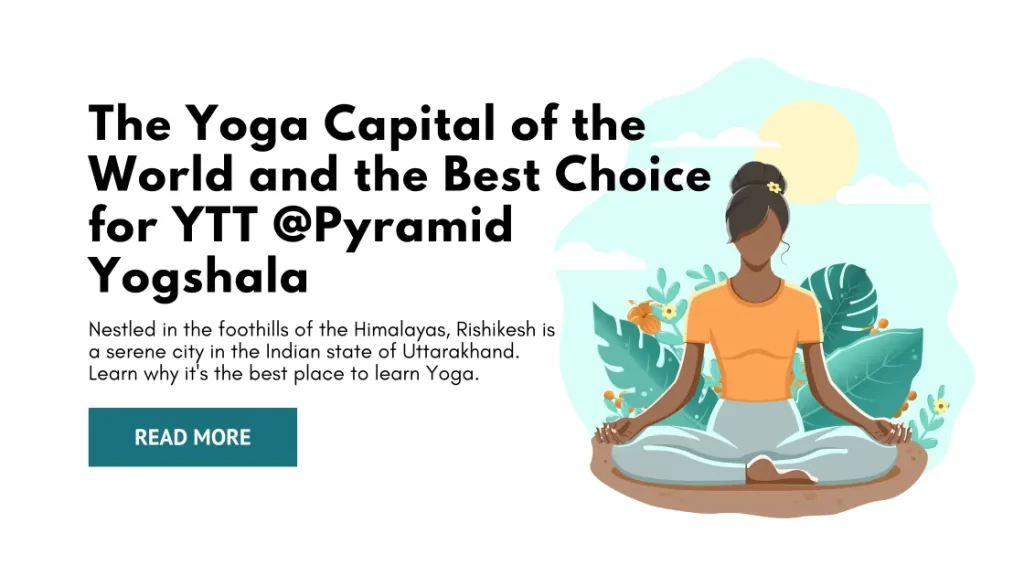In today’s fast lifestyle world, our mental health has become as important as our physical well-being. Depression and anxiety are two of the most common mental and emotional health challenges, affecting millions of people widely. While medication and therapy are generally prescribed treatments. Most of the people are turning to yoga as a holistic way to manage the conditions of it.
Yoga is a powerful tool for managing symptoms of depression. Yoga is an ancient practice that combines physical postures (asanas), breathing exercise (pranayama) and meditation, offering a pathway to reduce stress, improve mood and focus on the mind-body connections. This practice can reduce the symptoms of anxiety by promoting relaxation, boosting mood and improving overall well-being.
The Healing Power of Yoga
- Breathing Techniques (Pranayama): Pranamaya, or breath control is one of the most powerful tools in yoga. Intense and deep breathing helps to activate the parasympathetic nervous system, to calm our body and mind. Slow, rhythmic breathing reduces the compositions of stress hormones like cortisol. Which are often elevated in those struggling with depression and anxiety. Breathing exercises such as Ujjayi (victorious breath) and Nadi Shodhana (alternate nostril breathing) helps in soothing nervousness and creating a sense of grounding.
- Physical Postures (Asanas): Yoga asanas (physical postures) help to improve flexibility, strengthen the body, and increase the energy levels. Practicing yoga regularly can boost serotonin levels, a neurotransmitter responsible for regulating mood. Special poses, such as Downward Dog, Child’s Pose, Cat-Cow and Legs Up the Wall, help in releasing the tension, lower heart rates and soothe the mind. These movements raise a connection with the body. It allow us to feel more present and mindful, which reduces the feeling of overwhelm and negativity.
- Mindfulness and Meditation: Yoga uplift mindfulness- the practice of being fully present and accepting whatever thoughts and feelings arise without judgment. Meditation frequently comprises yoga sessions, helps to cultivate a calm and focused mind. Mindfulness meditation can allow a break from the cycle of rumination, a common symptom of depression. By discovering thoughts without attachment, you can create a space between yourself and your emotions, promoting mental clarity and emotional health.
- Reduction of Stress: Stress is often caused by anxiety, and yoga’s faculty to adjust the nervous system plays a critical role in alleviating anxiety. When you practice yoga, the body learns to rescue stored tension, allowing the mind to relax. The physical activity involved in yoga also helps to tackle the fight-or flight response triggered by stress, providing a sense of relief from constant worry.
- Connection to the Present Moment: Both depression and anxiety often stem from a lack of ability to live in the present moment. Depression makes us think about the past, while anxiety causes us to worry about the future. Yoga practice anchors the practitioner in the present, helping them reunite with themselves and the world around them. This awareness helps for emotional healing, as you are no longer trapped in past regrets or future fears.

Benefits of Yoga for Depression and Anxiety
- Reduces Stress: Yoga moves down cortisol levels (the stress hormones), and promotes relaxation.
- Improves Mood: The combination of physical movement and breathwork boots the production of endorphins and serotonin.
- Increases Self-Awareness: Yoga motivates mindfulness, which helps every individual gain insight into their thoughts and emotions.
- Balances the Nervous System: Practices like pranayama help to activate the parasympathetic nervous system, which is responsible for the body’s relaxation response.
Tips for Practicing Yoga for Depression and Anxiety:
- Strat Slow: If you are new to yoga, then start with beginner-friendly sessions and gently build your practice.
- Listen to Your Body: Do not push yourself into challenging poses. Modify as needed to stay comfortable.
- Be Patient: Mental health benefits usually take time, so be patient with yourself and allow yoga to support your healing journey.
Incorporating Yoga into Your Daily Routine
To experience the full sake of yoga for depression and anxiety. Try Pyramid Yogshala trained experts to integrate it into your daily lifestyle. You can start with a short practice (10-20 minutes) and moderately raise the duration as you feel more comfortable. Pyramid Yogshala offers 4 and 7 days yoga retreat for the beginners. This retreat is the best choice for every individual (solo, friends, families and couples) for a transformative and renewed experience. Consistency is a key, so aim for a regular routine to experience long-term benefits.
Remember, yoga is not a rapid fix, but a tool to support your mental health journey. If you are dealing with depression and anxiety, Pyramid Yogshala is helpful for you to manage your symptoms alongside professional treatment. Always consult with our healthcare provider before starting any new exercise routine.
Conclusion
Yoga provides a holistic and effective approach to managing depression and anxiety by combining the mind, body, and breath. Through its calming physical postures, mindful breathing techniques, and meditative practice. Yoga can help to reduce stress, improve mood, and encourage a deeper connection to the present moment. While it may not offer an instant cure. Regular practice can significantly improve emotional well-being and offer long-term benefits of yoga in managing mental health. By incorporating yoga into your daily routine, you are not only supporting your physical health but also nurturing your mental and emotional health. Always remember to approach your yoga journey with patience and consistency, and consult with a healthcare provider for a well-rounded approach to your mental health.


